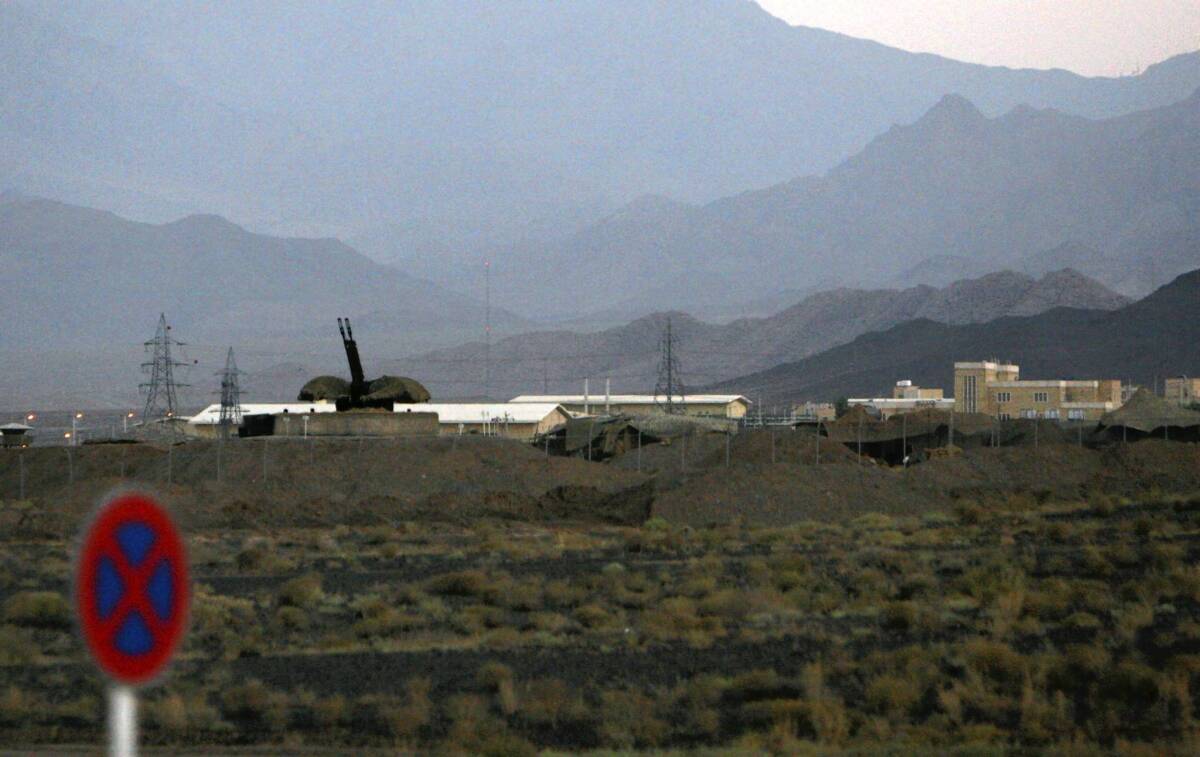Iran plans nuclear complex upgrade

- Share via
WASHINGTON — Iran has told the United Nations’ nuclear watchdog agency that it plans to add 3,000 faster centrifuges to its main uranium enrichment facility, a step that could shorten the time needed if Tehran decides to build a nuclear bomb.
Officials with the Vienna-based International Atomic Energy Agency said Thursday that Iranian authorities had informed them in a letter that Tehran would add IR-2m centrifuges, which spin three to five times faster than the current IR-1 model, to the enrichment hall at the Natanz nuclear complex.
Although Iran often has boasted of technological capabilities it doesn’t have, Western governments are taking the announcement seriously. Diplomats said the disclosure deepened their concern that Tehran wasn’t serious about resuming negotiations over demands to curb its nuclear program.
Diplomats from six world powers have been discussing holding new talks with Iran since November, but have yet to set a time and place.
Iran is known to have been experimenting for some time with the faster centrifuges, so the announcement was not entirely a surprise. Iran maintains that its program is for peaceful purposes.
If Iran mastered the technology, it could convert low-enriched uranium into the 25 kilograms of bomb-grade uranium needed for a bomb in four months, compared with the 12 months required with the current centrifuges, estimated Cliff Kupchan, an analyst with the Eurasia Group consulting firm. The country “could dash to a bomb considerably more quickly,” he wrote in an analysis.
He wrote that although Iran’s claims should be viewed with caution, “the announcement does, however, make the prospect for successful diplomacy even dimmer.” He predicted that the six world powers that have been trying to negotiate boundaries on Iran’s nuclear program will probably try to limit or halt installation of the new centrifuges in talks, a demand Iran would probably reject.
U.S. and Israeli officials have said they won’t allow Iran to waste time indefinitely and have raised the possibility of a military attack at some point to slow the program.
Iran has a presidential election in June, and some foreign officials fear that if talks don’t progress in the next few weeks there may be no realistic hope for serious negotiations until late summer at the earliest. Iran, meanwhile, could continue making progress on its nuclear program.
More to Read
Sign up for Essential California
The most important California stories and recommendations in your inbox every morning.
You may occasionally receive promotional content from the Los Angeles Times.











